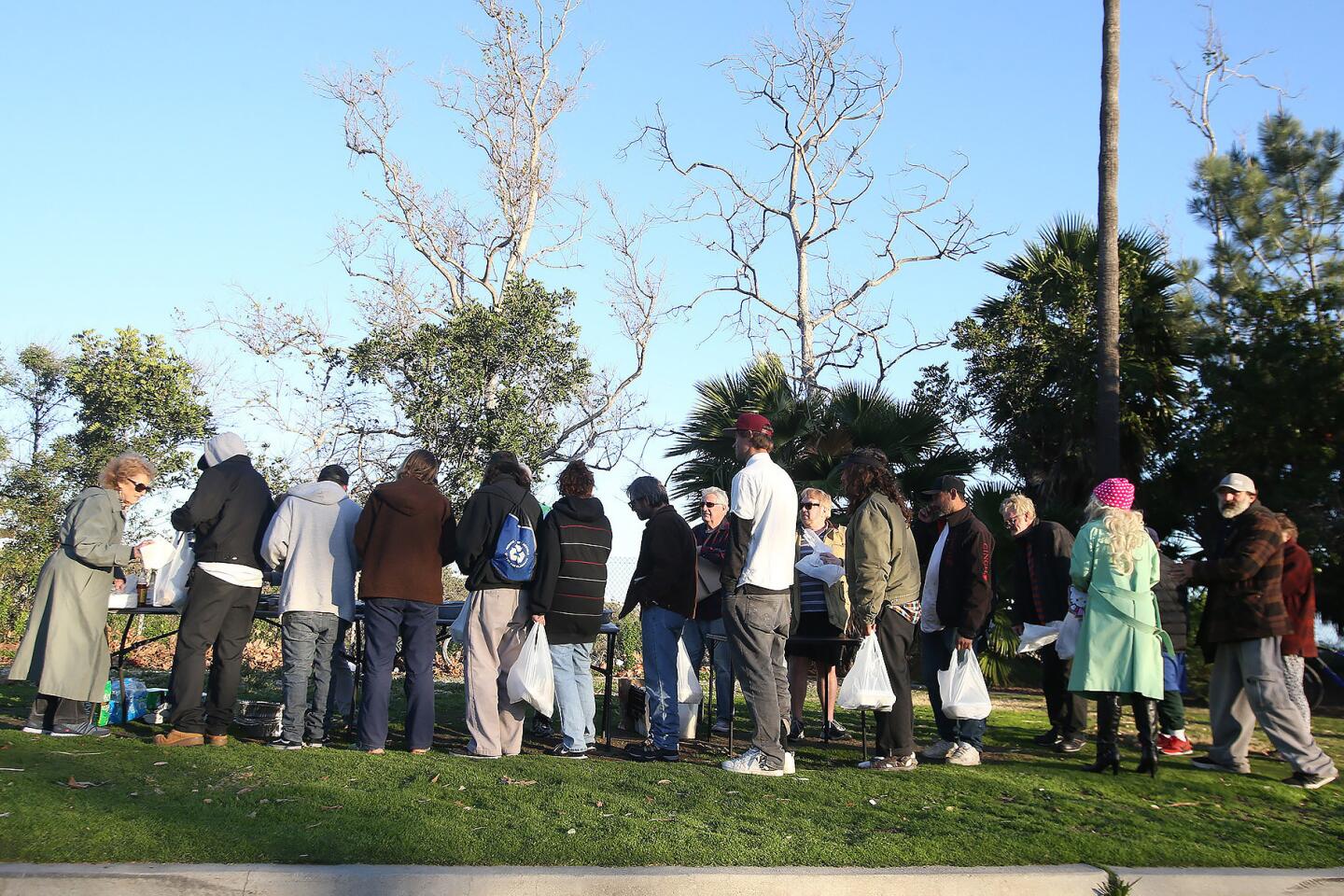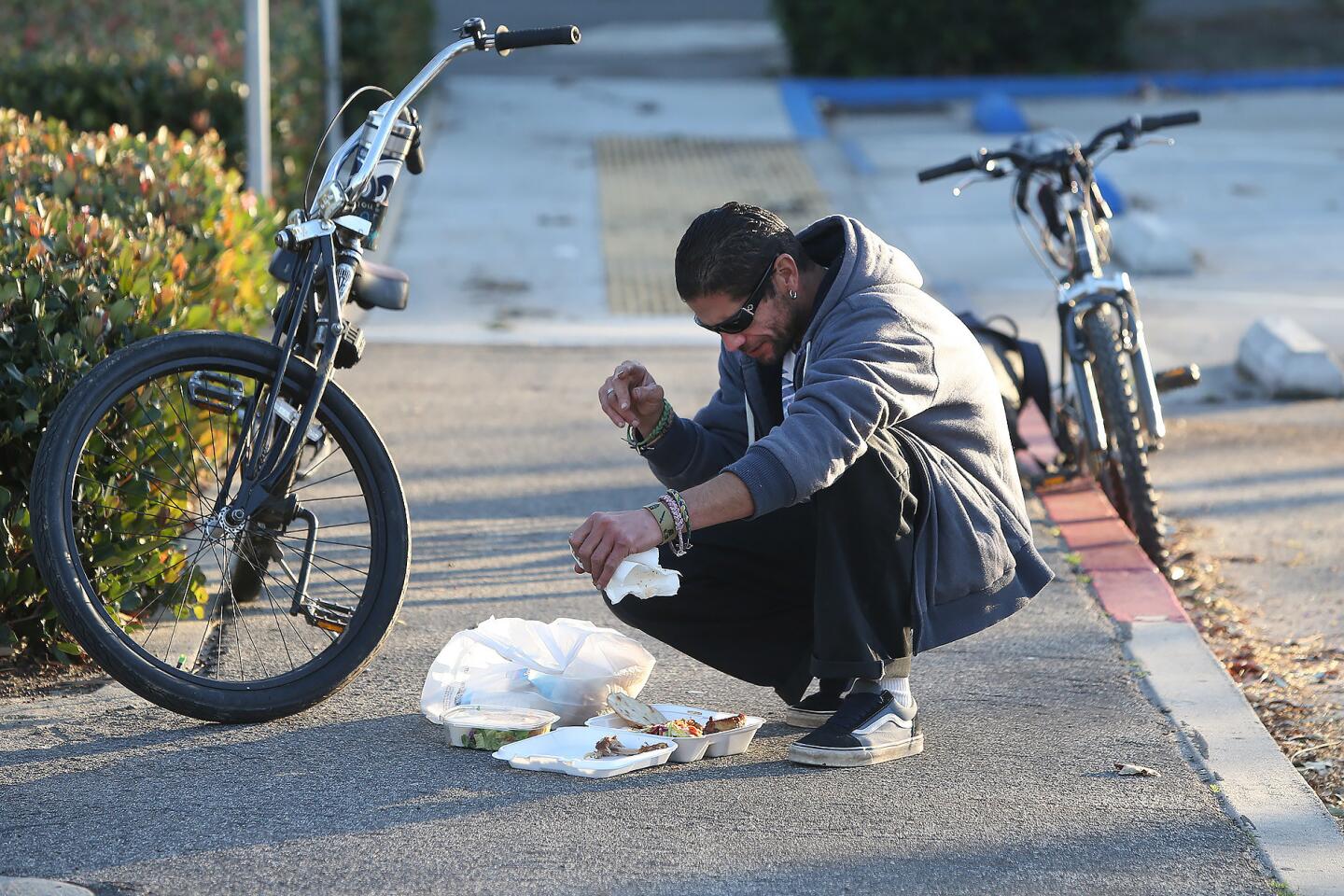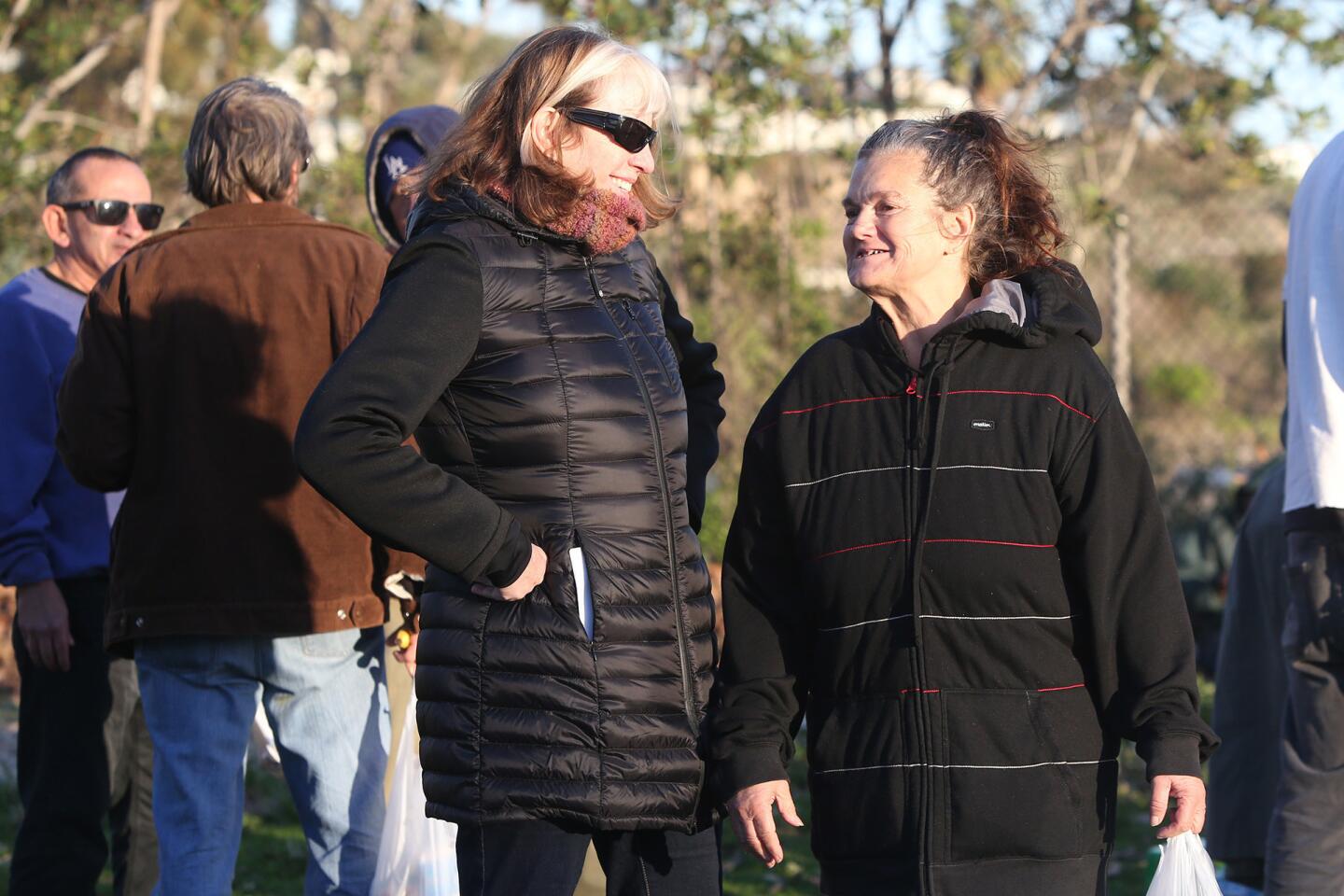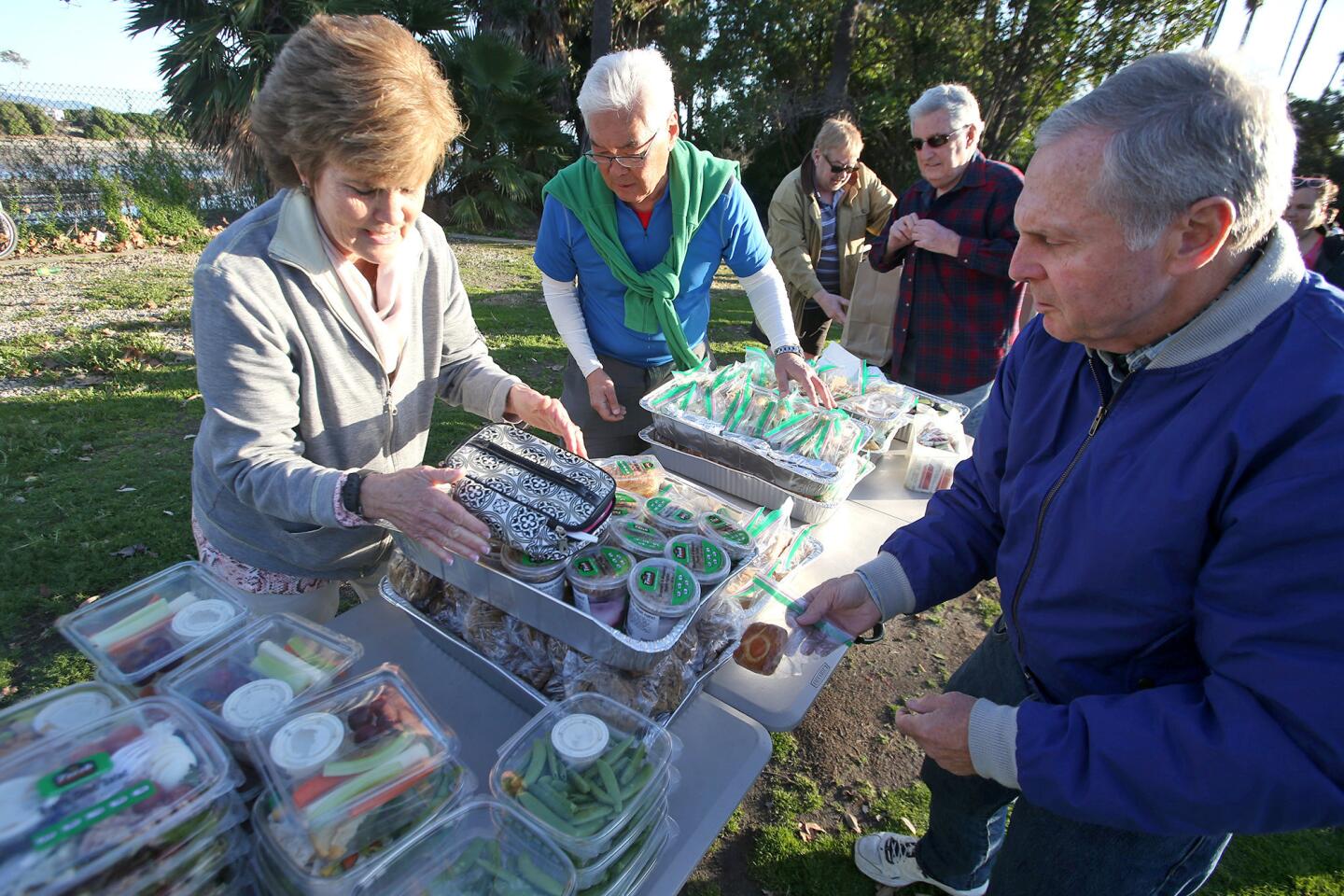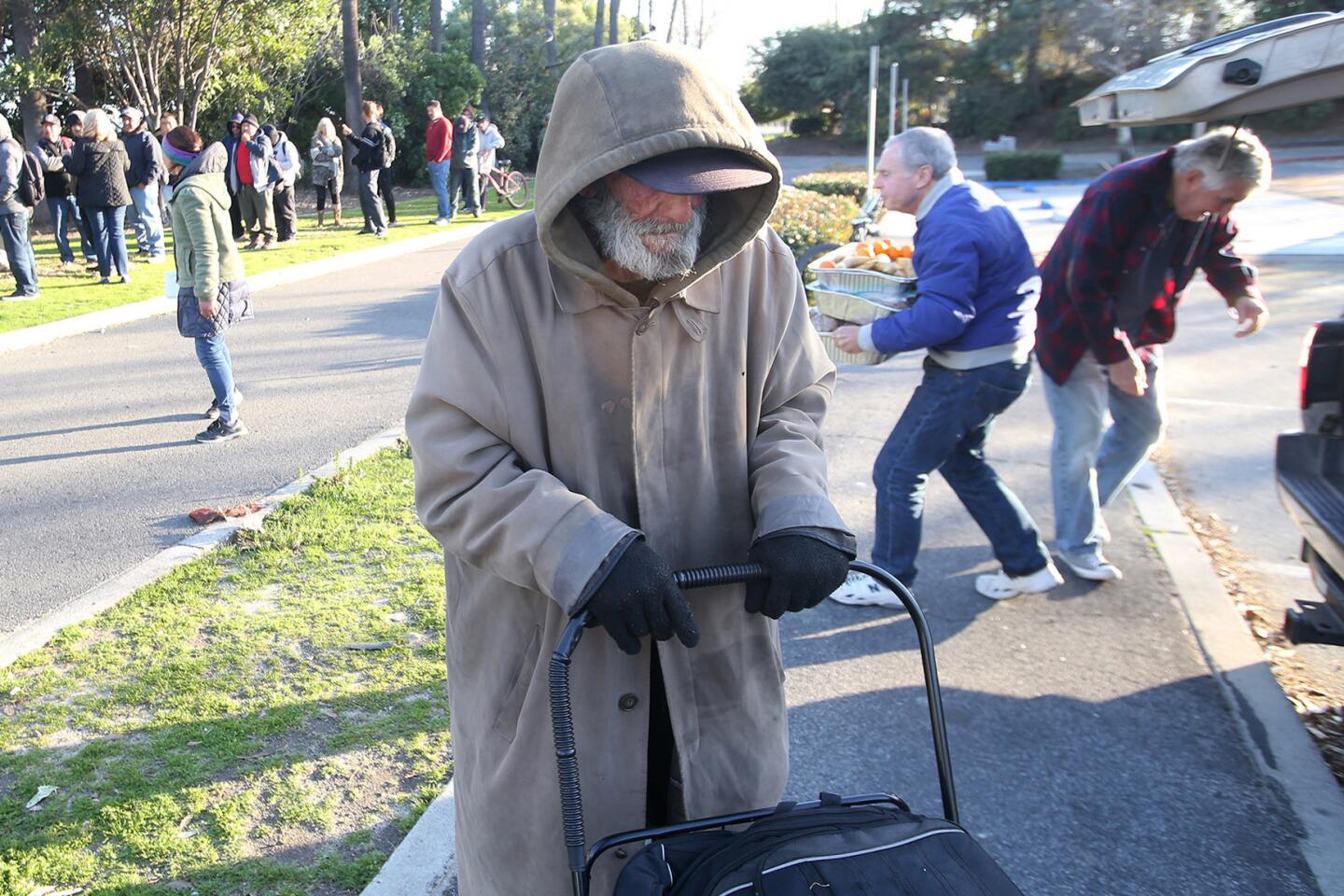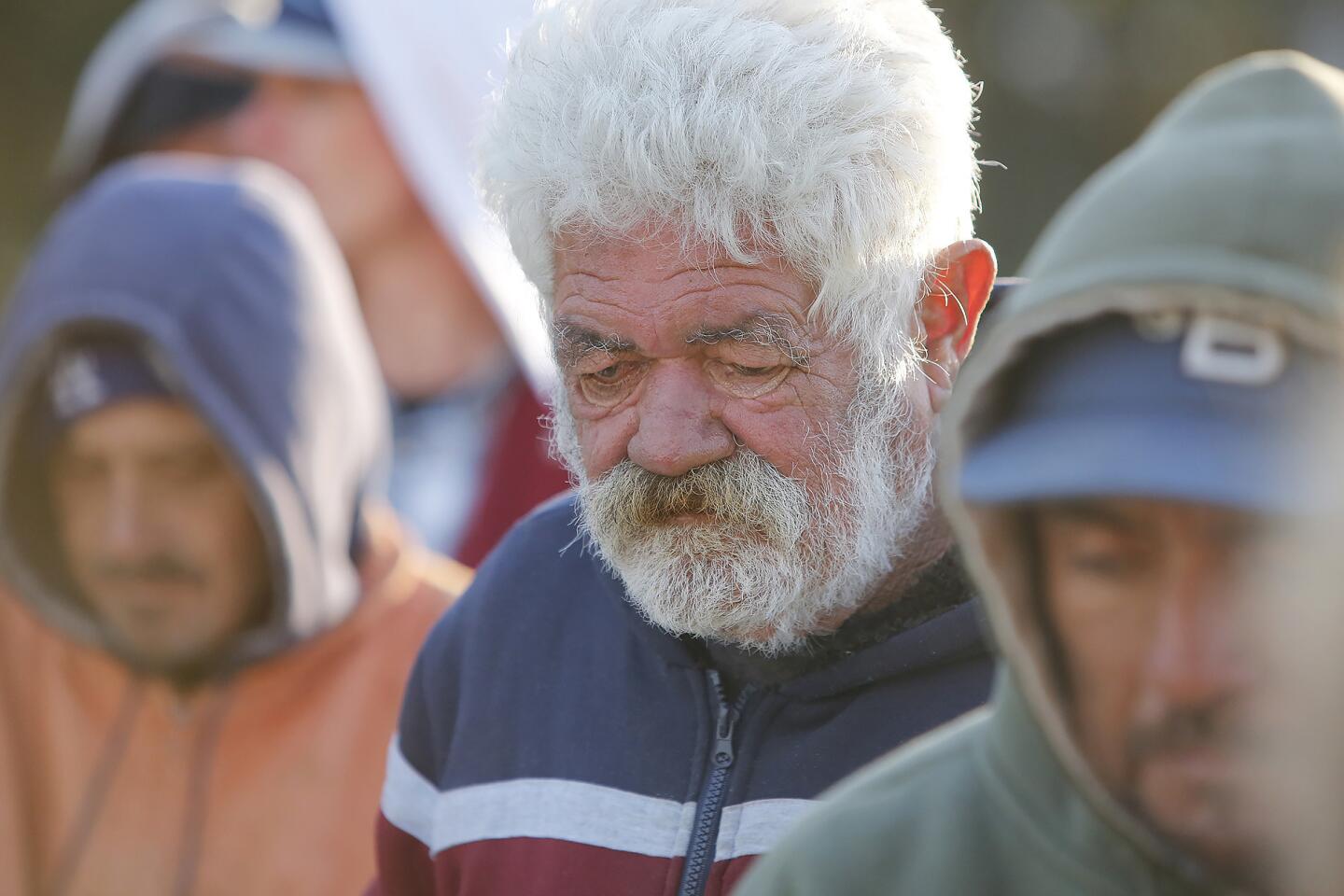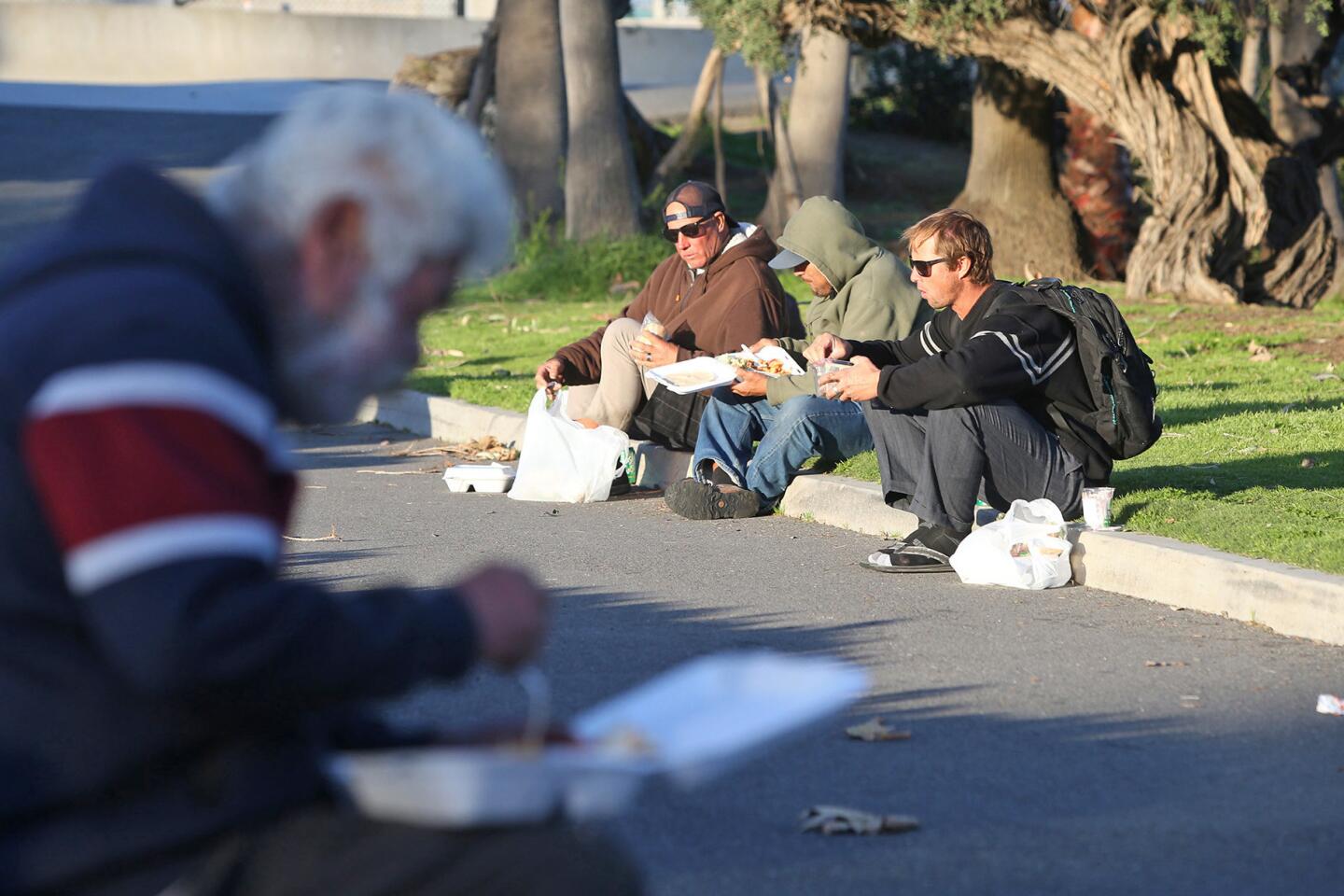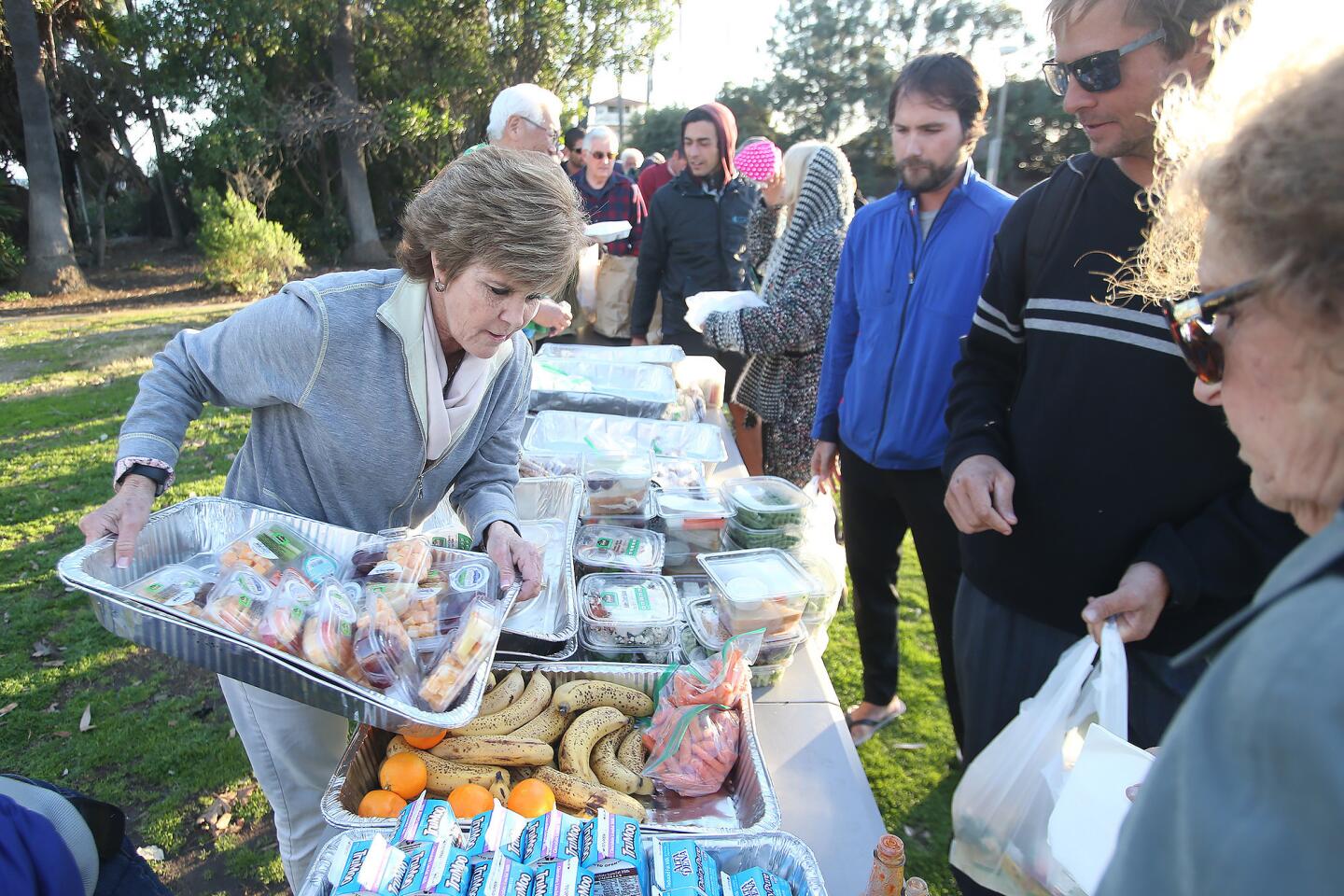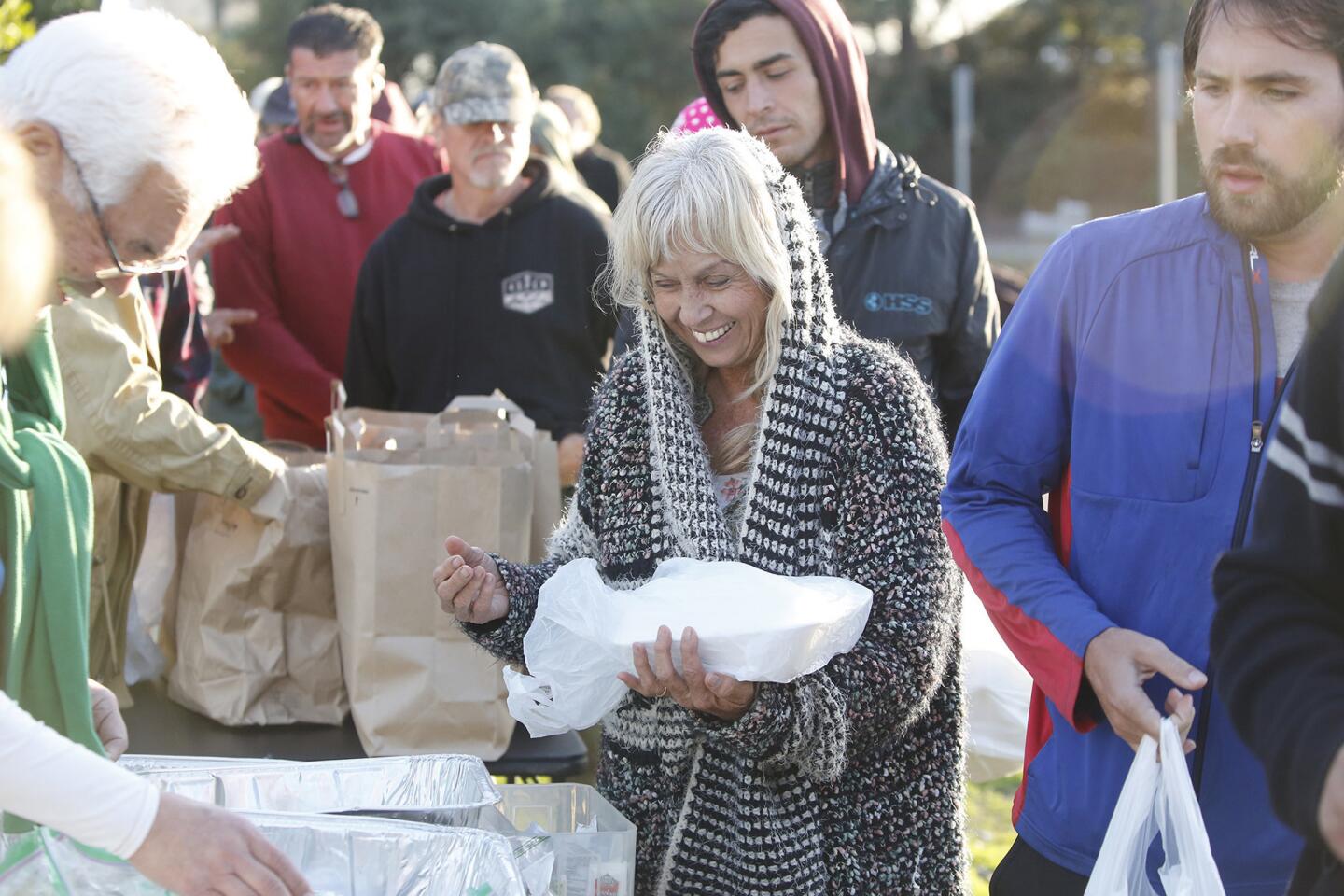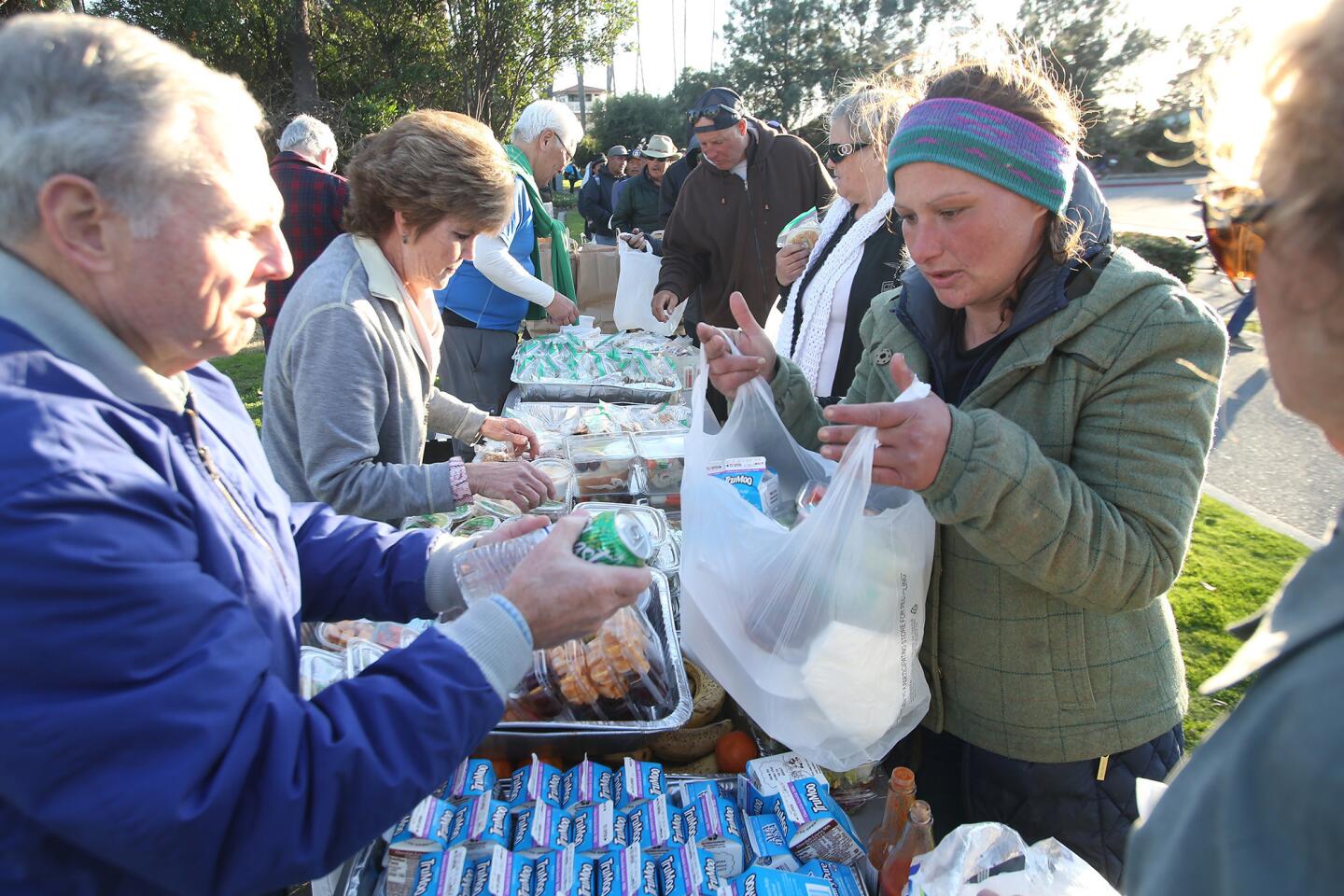City leaders in Dana Point would like longtime charity to stop feeding the homeless
As the light began to fade on Doheny State Beach, and the homeless prepared for another cold night, a handful of volunteers performed a daily ritual.
They unfolded a long table with a variety of foods — donated bags of vegetables, snacks, chicken.
Then Joe Perez, who was hit by a train when he was 7 and has trouble speaking, stood before about 40 hungry people — the homeless, the working poor — and blessed their meals.
The daily servings from Welcome INN (Interfaith Needs Network) and its partner churches started more than 20 years ago in Dana Point.
“Our mission is to feed anybody who is hungry,” said Don Lemly, president of the organization. “We do what we can to help improve their lives.”
Steven Marx is a regular.
“There are days where it’s the only meal I get,” said Marx, 52. “If they weren’t here there would be a lot of hungry people.”
Paul Burnell, who lives in a van, appreciates the companionship as much as the food.
“The churches here show us love and compassion — they actually care,” said Burnell, 39. “It’s a reprieve from the pain.”
But Welcome INN isn’t welcomed by all, including city officials.
Uproar from local residents led the city to send a letter requesting that Welcome INN cease operations. Some residents claim the servings attract unwanted homeless who behave in erratic ways and don’t dispose of their refuse.
The letter states that the group’s practices are “not consistent with best practices for ending someone’s homelessness and in fact is detrimental to achieving this goal.”
The homeless, the letter argues, need a pathway to housing and the daily “feed” is not helping.
“It’s not the right thing to do if you’re interested in really making sure they get squared away and housed,” Mayor Pro Tem Paul Wyatt said over the phone. “Feeding them is not the right answer for that.”
Toni Nelson, co-founder of Capo Cares, which opposes Welcome INN, claims the servings act as a “magnet” for the homeless. Capo Cares’ Facebook page has about 2,000 followers.
“The community feels that what Welcome INN is doing is really just enabling the homeless to stay homeless,” Nelson said. “It doesn’t really help them; it just gives them a band-aid but it doesn’t really do the big surgery that is needed to get them off the street.”
Lemly and his wife, Kathy, director of team volunteers for Welcome INN, contend that the organization works with groups that help those who need it find housing.
One of them is iHope, which organizer Cathy Domenichini says uses mealtimes to connect with the homeless. Members of Orange County Behavioral Services, which provides mental health services, and Family Assistance Ministries, which connects the homeless to shelter, personalized supportive counsel and meals, also attend.
In 2008, Welcome INN filed a lawsuit after a state park ranger blocked volunteers from providing the servings and threatened arrest, claiming the group was engaging in “unlawful assembly.”
The American Civil Liberties Union, representing Welcome INN, argued successfully that the ranger’s actions interfered with the group’s 1st Amendment rights to gather.
“The state park rangers, they would like nothing better than for us to disappear,” Lemly said. “That’s not going to happen.”
Lemly believes Welcome INN and other nonprofits have to pick up the slack as southern Orange County civic leaders continue to default on U.S. District Court Judge David O. Carter’s instructions to find suitable locations for homeless shelters.
Carter is overseeing a lawsuit launched by homeless advocates after the removal of a tent city near Angel Stadium. Since it was filed last year, South County has taken a backseat in the proceedings, but that will end this year.
Brooke Weitzman, co-founder of the nonprofit legal firm that filed the riverbed lawsuit, said the firm is preparing legal action seeking that South County communities do their share to comply with Carter’s directives.
Wyatt led the city’s homeless task force before it disbanded in 2018. Per the task force’s recommendation, Dana Point employs two full-time case workers to aid the homeless.
The city compiled a list of about 108 homeless people who have been contacted within Dana Point, many of them were only seen once within the city, Wyatt said.
Case workers check in with 25 to 35 people on the list twice a week to try to connect them with services.
“Our goal, as I told the council in a meeting,” Lemly said, “is that Welcome INN would be delighted to show up to serve dinner some evening and nobody shows up because they are taken care of. But that isn’t happening.”
All the latest on Orange County from Orange County.
Get our free TimesOC newsletter.
You may occasionally receive promotional content from the Daily Pilot.

